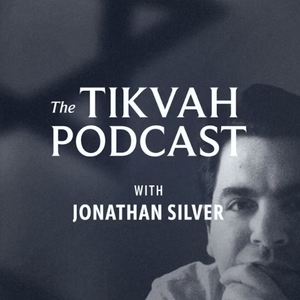R.J. Snell on Modern Expressions of the Marcionite Heresy
This episode of the Tikvah Podcast might be the first dedicated entirely to Christian theology. Why would a Jewish podcast devote so much attention to a theological debate that took place among Christians in the 2nd century? First, because it contributed to the canonization of Christian scripture and defined forever the Christian attitude toward the Hebrew Bible. But more importantly, because we are witnessing today the reemergence of some of the very ideas that the Church fathers of that time declared heretical. The figure at the center of this conversation is a Christian thinker name Marcion, who lived from 85 to 160 CE. He taught that there were not one but two gods: the creator God of the Hebrew Bible—a violent, vengeful, tribal demiurge—and the true God that is revealed to humankind by Jesus. To Marcion, the Christian God alone is a God of love and mercy. Therefore, he concluded, Christianity should detach itself entirely from the Hebrew Bible. Most people have heard some version of the idea that the Hebrew God is vindictive, unforgiving, and particularistic, and that the Christian God teaches grace and mercy. But the notion that they're radically distinct has now returned. The prominent Internet talk-show host Tucker Carlson has spoken on numerous occasions about disconnecting the Hebrew Bible from the New Testament. On the August 25, 2025 episode of his show, he explained that he had just read what Christians called the Old Testament and "was pretty shocked by—as I think many people who read it are—by the violence in it, and shocked by the revenge in it, the genocide in it." Then, in conversation with Megyn Kelly on November 6, he said that "Western civilization is derived from the New Testament. It is based on Christian ethics. And the core difference between the West and the rest of the world—not just Israel but every other country—is that we don't believe in collective punishment because we don't believe in blood guilt." It's important to draw a distinction between Marcionism and the doctrine of supersessionism, historically accepted by some Christian theologians. Supersessionism claims that God's covenant with Israel has been replaced, or superseded, by the universal redemption brought about by Jesus. Marcion, by contrast, says something else: that the God who established a covenant with the children of Israel is not the same as the Christian God at all, but a lesser, wicked deity. The idea that the Hebrew Bible and the Christian New Testament are motivated by different ethics and aim at different moral teachings is not especially controversial. After all, that is a conventional Jewish understanding of the New Testament. But the early church fathers decisively rejected Marcion's ideas: both his dualism and his attempt to remove the story of Israel from the Christian Bible. One, Tertullian, wrote five books refuting him. Another foundational Christian thinker, Irenaeus, declared Marcion a heretic. By rejecting his teachings, Christianity made a defining choice to accept that the God of creation and the God of Christian redemption are, for Christians, one and the same. And because one of the most popular anti-Jewish voices is sounding some of those very notes right now, a deeper, Christian context seems necessary to help Jews understand the nature of the new assault against them. To this end, the Christian philosopher R.J. Snell joins Mosaic's editor Jonathan Silver to explain that context. Snell is the director of academic programs at Princeton University's Witherspoon Institute and the editor in chief of its publication, Public Discourse. He delves into what Marcion believed, why the church rejected him, and what was at stake in that rejection—then and now.


